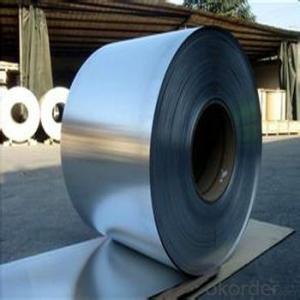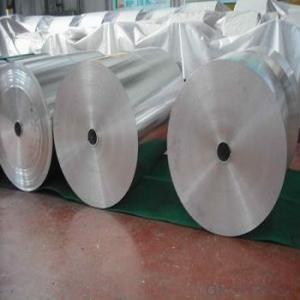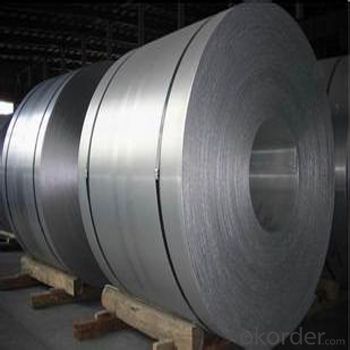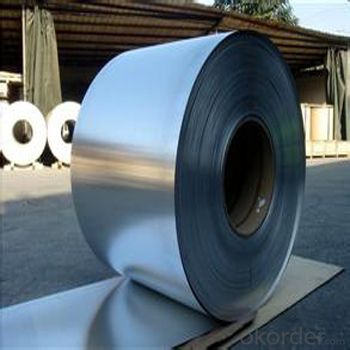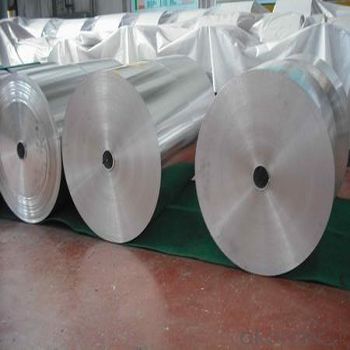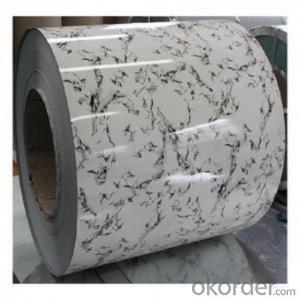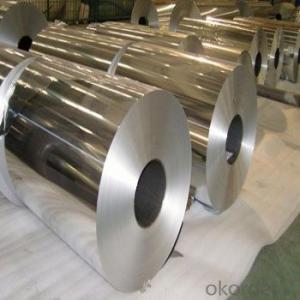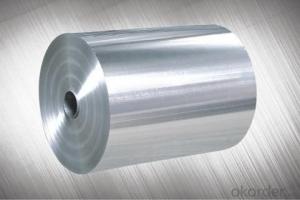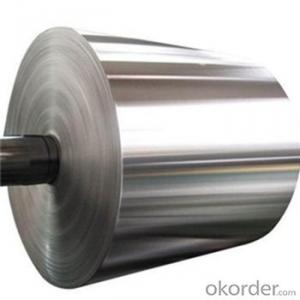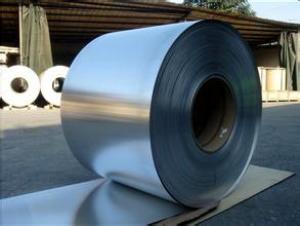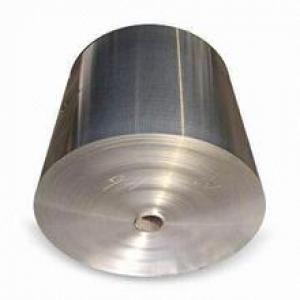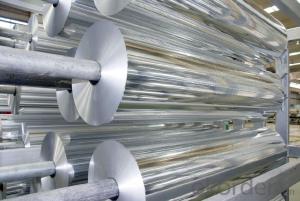9,000 Kilogram Aluminum Jumbo Rolls and Mill Finished Coil
- Loading Port:
- Qingdao
- Payment Terms:
- TT or LC
- Min Order Qty:
- 1 m.t.
- Supply Capability:
- 1000 m.t./month
OKorder Service Pledge
OKorder Financial Service
You Might Also Like
1.Knowledge about Aluminum
Aluminium is oxidized by water at temperatures below 280°C to produce hydrogen, aluminium hydroxide and heat:2 Al + 6 H2O → 2 Al(OH)3 + 3 H2
This conversion is of interest for the production of hydrogen. Challenges include circumventing the formed oxide layer, which inhibits the reaction and the expenses associated with the storage of energy by regeneration of the Al metal.
Aluminium is theoretically 100% recyclable without any loss of its natural qualities. According to the International Resource Panel's Metal Stocks in Society report, the global per capita stock of aluminium in use in society (i.e. in cars, buildings, electronics etc.) is 80 kg (180 lb). Much of this is in more-developed countries (350–500 kg (770–1,100 lb) per capita) rather than less-developed countries (35 kg (77 lb) per capita). Knowing the per capita stocks and their approximate lifespans is important for planning recycling.
2.Specification and Application
ALUMINIUM COIL
ALLOY: AA1***
AA3***
AA5***
TEMPER: H14 H16 H18 H22 H24 H26 H32 O/F
THICKNESS:0.03MM-3.0MM
WIDTH: 30MM-1700MM
COATING: PE(POLYESTER),PVDF,EPOXY
STANDARD: GB/T 17748-1999
3.Why you choose us?
Our company promise the best quality, best service and best price.Welcome you to visit our factory!
4.Pictures
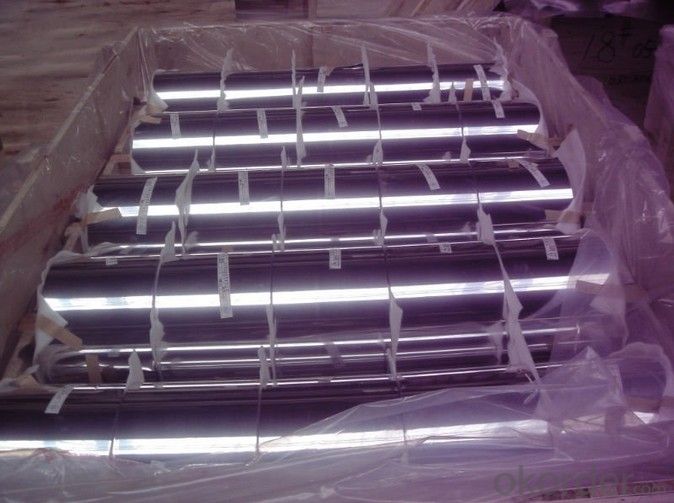
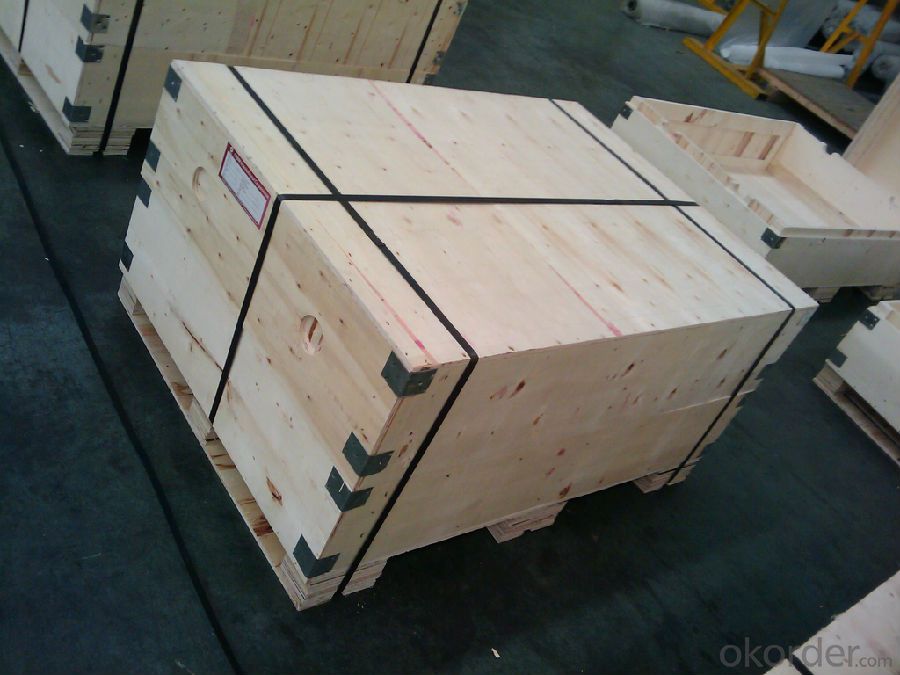
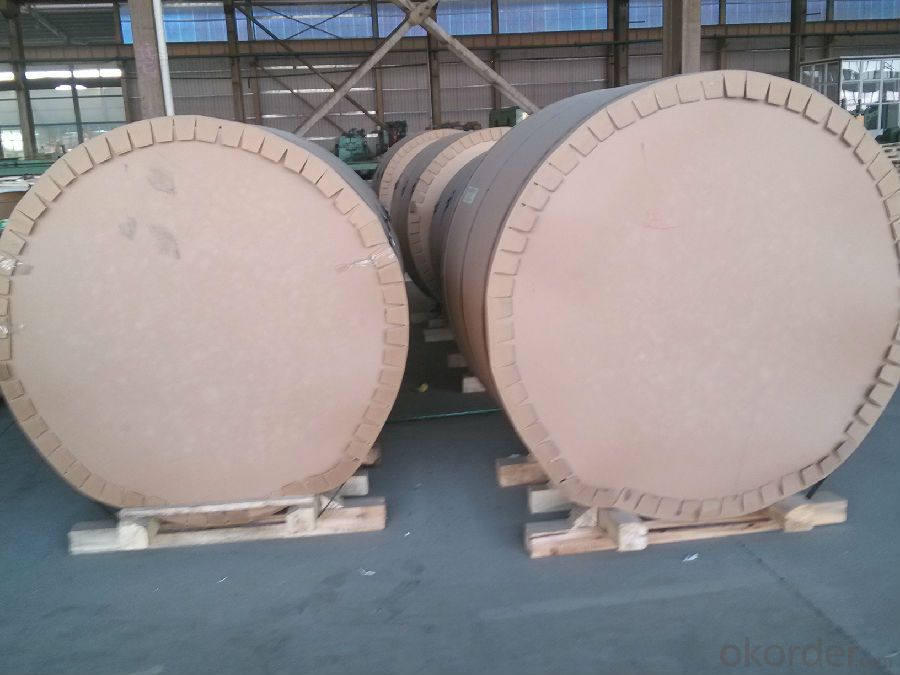
5.FAQ:
1)what is aluminum?
Aluminium (or aluminum; see spelling differences) is a chemical element in the boron group with symbol Al and atomic number 13. It is a silvery white, soft, nonmagnetic, ductile metal. Aluminium is the third most abundant element (after oxygen and silicon), and the most abundant metal in the Earth's crust. It makes up about 8% by weight of the Earth's solid surface.
Aluminium metal is so chemically reactive that native specimens are rare and limited to extreme reducing environments. Instead, it is found combined in over 270 different minerals.The chief ore of aluminium is bauxite.
2)What's kind of payment term we can supply?
CIF,CFR, FOB and other.
3)Can we supply samples?
Yes, we can!
4)What can you do if you have other quastions?
You can contact us freely at any time!
2)How about our payment term?
LC and TT and other.
3)Which country can we supply?
All around the world!
- Q: 0.6mm insulation aluminum coil price insulation aluminum coil where to buy the most assured?
- If the surface of the aluminum color, it is directly on the Internet search color coated aluminum roll can be.
- Q: Can a digital caliper be utilized to accurately measure the diameter of an aluminum coil?
- <p>Yes, you can use a digital caliper to measure the diameter of an aluminum coil accurately. Digital calipers are precise measuring tools, often accurate to 0.001 inches or 0.02mm, which is suitable for measuring the diameter of various objects, including aluminum coils. Ensure the caliper is zeroed before use and that the coil's surface is clean and flat where the measurement is taken to get accurate readings.</p>
- Q: How do aluminum coils contribute to the energy efficiency of products?
- Aluminum coils contribute to the energy efficiency of products by providing excellent heat transfer properties. Their high thermal conductivity allows for efficient heat exchange, helping to cool or heat products more quickly and effectively. Additionally, aluminum coils are lightweight, which reduces the energy required for transportation and installation. The durability and corrosion resistance of aluminum also contribute to the longevity of products, reducing the need for frequent repairs or replacements, further enhancing energy efficiency.
- Q: Can aluminum coils be used in the manufacturing of cans and containers?
- Yes, aluminum coils are commonly used in the manufacturing of cans and containers. Aluminum is lightweight, durable, and resistant to corrosion, making it an ideal material for packaging food and beverages. The coils are typically processed and shaped into desired can or container forms before being used in the manufacturing process.
- Q: Can aluminum coils be welded or soldered?
- Yes, aluminum coils can be welded or soldered.
- Q: Can a rolling machine be utilized to transform aluminum coils into flat sheets?
- <p>Yes, you can use a rolling machine to roll aluminum coils into sheets. Rolling machines are specifically designed to apply pressure and reduce the thickness of metal coils, such as aluminum, into thinner, flatter sheets. The process involves passing the aluminum coil through the rolling mill, where it is compressed between rollers. This process can be repeated to achieve the desired thickness and flatness of the aluminum sheet. It's important to ensure the rolling machine is suitable for aluminum and that the appropriate settings are used to avoid damaging the material or the machine.</p>
- Q: How are aluminum coils different from other types of metal coils?
- Aluminum coils are different from other types of metal coils primarily due to their unique properties and characteristics. Unlike other metals, aluminum is lightweight, corrosion-resistant, and highly malleable, making it an ideal material for various applications such as construction, automotive, and electronics. Additionally, aluminum coils have excellent conductivity, enabling efficient heat transfer and electrical conductivity. These qualities, coupled with its affordability and recyclability, set aluminum coils apart from other metal coils in terms of versatility and practicality.
- Q: Are aluminum coils suitable for automotive applications?
- Yes, aluminum coils are suitable for automotive applications. Aluminum coils offer several advantages such as lightweight, high corrosion resistance, and excellent heat conductivity, making them an ideal choice for various automotive components like radiators, condensers, and evaporators. The use of aluminum coils helps improve fuel efficiency, reduce emissions, and enhance overall vehicle performance.
- Q: Explain how the temperature affects aluminum coil properties and behavior.
- <p>The relationship between aluminum coil and temperature is significant as temperature influences the coil's physical properties and performance. At lower temperatures, aluminum coils become more brittle and susceptible to cracking or breaking. As the temperature increases, aluminum's ductility improves, allowing it to be more easily shaped and formed. However, excessive heat can also lead to deformation and loss of strength. The thermal conductivity of aluminum is high, meaning it conducts heat well, which is useful in applications requiring heat transfer. Additionally, the electrical conductivity of aluminum is affected by temperature; as temperature rises, resistance increases, which can impact applications where electrical conductivity is critical.</p>
- Q: Are aluminum coils suitable for architectural sunshades?
- Yes, aluminum coils are suitable for architectural sunshades. Aluminum is a popular material choice for sunshades due to its lightweight nature, durability, and corrosion resistance. Aluminum coils can be used to create various shapes and designs for sunshades, allowing for flexibility in architectural design. Additionally, aluminum can be easily fabricated and installed, making it a practical choice for architectural projects. Furthermore, aluminum has excellent thermal properties, allowing it to effectively reflect heat and reduce solar gain, which can help improve energy efficiency in buildings. Overall, aluminum coils are a suitable and versatile option for architectural sunshades.
Send your message to us
9,000 Kilogram Aluminum Jumbo Rolls and Mill Finished Coil
- Loading Port:
- Qingdao
- Payment Terms:
- TT or LC
- Min Order Qty:
- 1 m.t.
- Supply Capability:
- 1000 m.t./month
OKorder Service Pledge
OKorder Financial Service
Similar products
Hot products
Hot Searches
Related keywords

